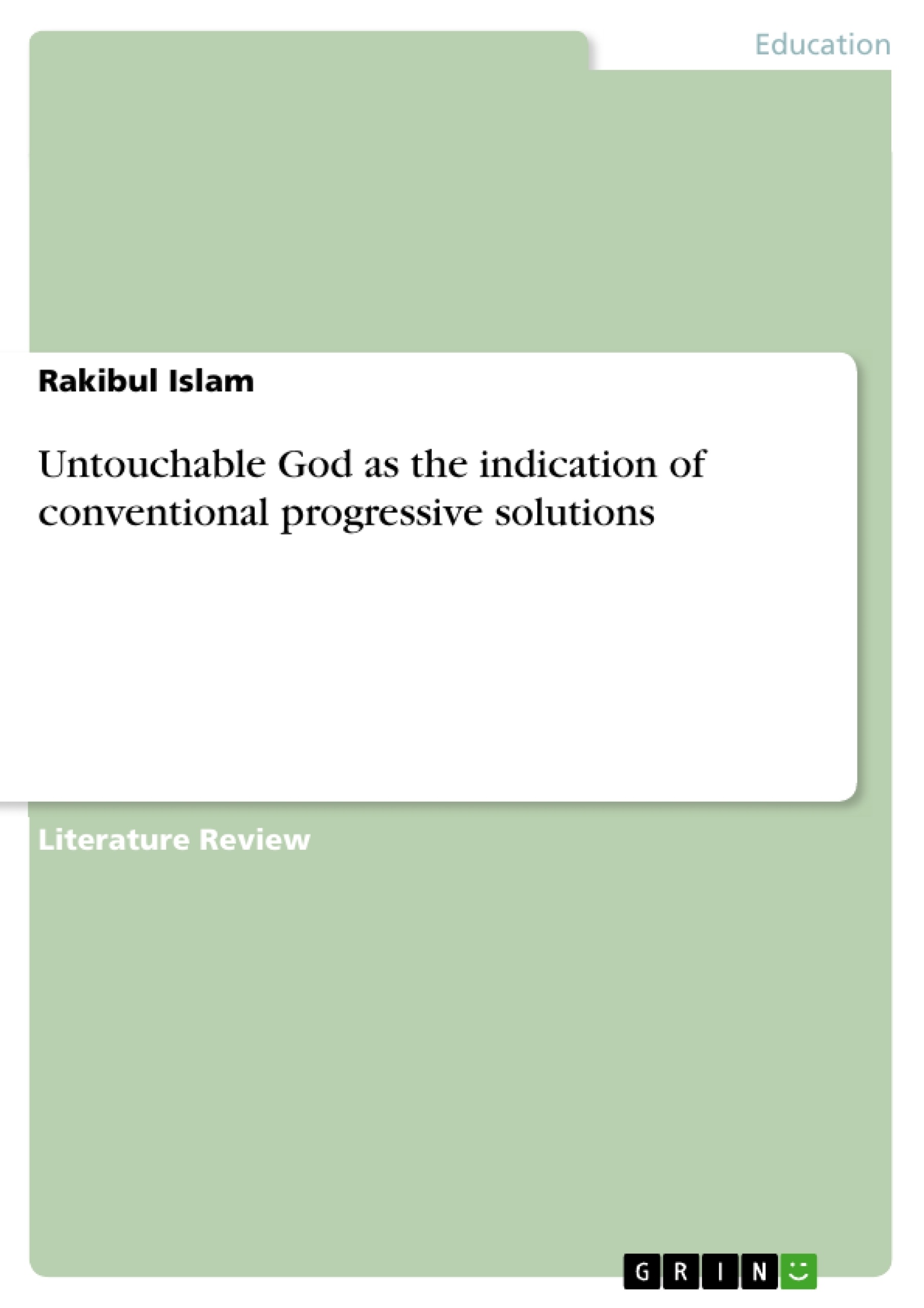“Progressivism” is an ideological, pragmatic system of thought grounded in solving problems and maintaining strong values within society. Progressive writers want to take some change in society or they want to provide some solution for the existing problems. When it comes to the case of caste system (untouchability), there are some conventional solutions given to eradicate caste and untouchability. These are inter- caste marriage, providing education, upliftment of women, freedom of thought and expression, equal treatment, unequal opportunity etc.
To a certain extent these solutions are effective in the society. “Untouchable God: A Novel on Caste and Race” by Kancha Ilaiah (an Indian academician, writer, social, activist for dalit rights) is a portrayal of these ideas through the description of the life of Pariah and Saraswati. He also points out that the condition of upper caste women and makes a remark that their condition is also not different. This paper is an attempt to find the portrayal of these conventional progressive solutions prescribed for the upliftment of women and lower class.
Inhaltsverzeichnis (Table of Contents)
- Abstract
- Full Paper
- Conclude
- References
Zielsetzung und Themenschwerpunkte (Objectives and Key Themes)
This paper examines the portrayal of conventional progressive solutions for the upliftment of women and lower classes in Kancha Ilaiah's novel, "Untouchable God: A Novel on Caste and Race." The novel uses the lives of Pariah and Saraswati to illustrate the ongoing challenges of caste and untouchability in India.
- The limitations of conventional progressive solutions in addressing caste-based discrimination
- The persistence of caste-based prejudices and violence in Indian society
- The role of education in challenging social hierarchies
- The impact of religious beliefs and practices on caste relations
- The complex experiences of women within the context of caste and class
Zusammenfassung der Kapitel (Chapter Summaries)
The paper begins by discussing the concept of progressivism and its historical roots in the Indian context, emphasizing the Indian Progressive Writers' Movement and its aim to address societal issues like poverty and social backwardness. The author then delves into the history and practices of untouchability in India, highlighting its cruel and deeply ingrained nature.
The paper subsequently introduces Kancha Ilaiah and his work, focusing on his critiques of Brahminical dominance and the social and economic implications of the caste system. The novel "Untouchable God" is then presented as a poignant exploration of these themes, illustrating how the upper castes treat the Untouchables and how this treatment is often justified through religious ideologies.
The paper then explores the portrayal of Pariah, an Untouchable man, who is killed for daring to think about God and equality. The author analyzes how Pariah's aspirations are perceived as a challenge to the established social order. Finally, the paper examines the story of Saraswati, a Dalit woman who faces discrimination and oppression due to her caste, emphasizing the barriers to education and opportunities for women from lower castes.
Schlüsselwörter (Keywords)
The central keywords of this paper are untouchability, caste system, progressive solutions, Dalit rights, education, religion, Brahminical dominance, social justice, and gender inequality. The paper explores the complex interplay of these concepts in the context of Indian society.
Frequently Asked Questions
What is the central theme of Kancha Ilaiah's "Untouchable God"?
The novel explores the caste system and untouchability in India, specifically focusing on the struggle for Dalit rights and the limitations of progressive solutions.
What are "conventional progressive solutions" in the context of caste?
These include inter-caste marriage, providing education, the upliftment of women, and ensuring freedom of thought and expression to eradicate discrimination.
How does the novel portray the role of religion in the caste system?
Ilaiah critiques how religious ideologies are often used by upper castes to justify the oppression and dehumanization of the "Untouchables."
What does the story of Pariah represent?
Pariah represents the tragic fate of those who dare to challenge social hierarchies and seek equality and divine connection outside of Brahminical dominance.
How is the condition of upper-caste women compared to Dalits?
The novel suggests that upper-caste women also face systemic oppression, showing that gender and caste inequality are deeply intertwined in Indian society.
- Quote paper
- Rakibul Islam (Author), 2017, Untouchable God as the indication of conventional progressive solutions, Munich, GRIN Verlag, https://www.grin.com/document/359244



